Filter by
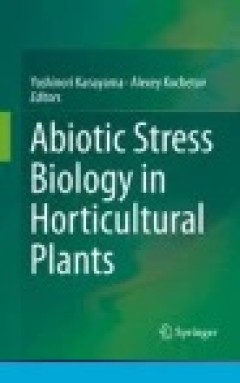
Abiotic Stress Biology in Horticultural Plants
The purpose of this publication is to elucidate the biological aspect of the abiotic stress response from the field to the molecular level in horticultural plants. This book is unique in that it concerns the basic aspect of abiotic stress biology and research progress at the molecular level in model plants or major field crops, as it focuses mainly on the abiotic stress response in existing hor…
- Edition
- Ed. 1
- ISBN/ISSN
- 978-4-431-55251-2
- Collation
- VIII, 220
- Series Title
- -
- Call Number
- 581 ABI a

Abdominal Solid Organ Transplantation: Immunology, Indications, Techniques, a…
This book is a comprehensive and innovative guide to abdominal solid organ transplantation (SOT). It explains the main immunological problems involved in abdominal SOT, reviews indications for liver, kidney, and small bowel transplantation, and provides detailed descriptions of techniques for procurement and transplantation. In addition, technical, infectious, and immunological complications an…
- Edition
- Ed. 1
- ISBN/ISSN
- 978-3-319-16997-2
- Collation
- IX, 453
- Series Title
- -
- Call Number
- 617 ABD a
Reactive Oxygen and Nitrogen Species Signaling and Communication in Plants
This book reviews the current state of information on reactive oxygen and nitrogen species and their role in cell communication during plant growth, development and adaptation to stress conditions. It addresses current research advances made in the area of reactive oxygen and nitrogen species (ROS and RNS) signaling. These free radical molecules are important in plant-microbe interactions, r…
- Edition
- -
- ISBN/ISSN
- 978-3-319-10079-1
- Collation
- -
- Series Title
- -
- Call Number
- 575.5
Reactive Oxygen Species and Oxidative Damage in Plants Under Stress
This book provides detailed and comprehensive information on oxidative damage caused by stresses in plants with especial reference to the metabolism of reactive oxygen species (ROS). In plants, as in all aerobic organisms, ROS are common by-products formed by the inevitable leakage of electrons onto O2 from the electron transport activities located in chloroplasts, mitochondria, peroxisomes …
- Edition
- -
- ISBN/ISSN
- 978-3-319-20421-5
- Collation
- -
- Series Title
- -
- Call Number
- 575.5
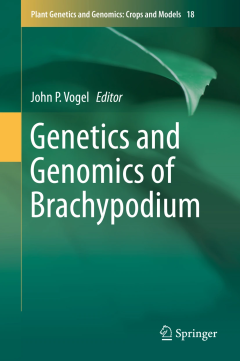
Genetics and Genomics of Brachypodium
Grasses dominate many natural ecosystems and produce the bulk calories consumed by humans either directly in the form of grains or indirectly through forage/grain fed animals. In addition, grasses grown as biomass crops are poised to become a significant source of renewable energy. Despite their economic and environmental importance, research into the unique aspects of grass biology has been ha…
- Edition
- -
- ISBN/ISSN
- 978-3-319-26942-9
- Collation
- XII, 353
- Series Title
- -
- Call Number
- 581.15 VOG g
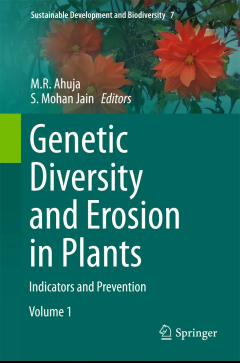
Genetic Diversity and Erosion in Plants
Genetic erosion is the loss of genetic diversity within a species. It can happen very quickly, due to catastrophic events, or changes in land use leading to habitat loss. But it can also occur more gradually and remain unnoticed for a long time. One of the main causes of genetic erosion is the replacement of local varieties by modern varieties. Other causes include environmental degradation, ur…
- Edition
- -
- ISBN/ISSN
- 978-3-319-25635-1
- Collation
- X, 323
- Series Title
- -
- Call Number
- 630
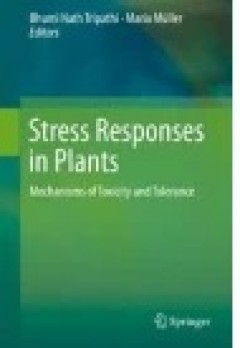
Stress Responses in Plants
This collection discusses the variety of specific molecular reactions by means of which plants respond to physiological and toxic stress conditions. It focuses on the characterization of the molecular mechanisms that underlie the induction of toxicity and the triggered responses and resistances. The nine chapters, all written by prominent researchers, examine heavy metal toxicity, aluminum toxi…
- Edition
- -
- ISBN/ISSN
- 978-3-319-13368-3
- Collation
- -
- Series Title
- -
- Call Number
- -
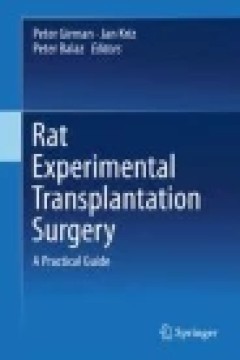
Rat Experimental Transplantation Surgery: A Practical Guide
The aim of the book is to describe tested microsurgical procedures of kidney, pancreas, islets, heat, liver and small bowel transplantation. All procedures written in the book are used in our experimental research laboratory and their description will be provided by an experienced researcher. The book is organized into ‘General’ and ‘Specific’ sections. The ‘General’ section will in…
- Edition
- -
- ISBN/ISSN
- 978-3-319-14559-4
- Collation
- -
- Series Title
- -
- Call Number
- 617.9
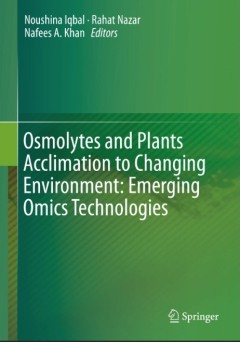
Osmolytes and Plants Acclimation to Changing Environment : Emerging Omics Tec…
The continual change in climatic conditions induces a series of adaptations in plants to suit the unfavorable conditions for sustainable agriculture. For sustainable agriculture, it is important to unravel the precise mechanism(s) that disturb the homeostatic equilibrium at cellular and molecular level and also to enhance understanding to build strategies for the tolerance of plants. Osmolytes …
- Edition
- -
- ISBN/ISSN
- 978-81-322-2616-1
- Collation
- -
- Series Title
- -
- Call Number
- 581.42 OSM

Encyclopedia of Immunotoxicology
This work provides rapid access to focused information on topics of Immunotoxicology not only for scientists and those dealing with laboratory aspects but also for lecturers and advanced students. Over 200 contributing authors - including many of the world's top specialists - have contributed full essays on all relevant topics, supplemented by keyword definitions of related terms. Full essays a…
- Edition
- -
- ISBN/ISSN
- 978-3-642-54596-2
- Collation
- in 2 volumes, not available separately
- Series Title
- -
- Call Number
- -
 Computer Science, Information & General Works
Computer Science, Information & General Works  Philosophy & Psychology
Philosophy & Psychology  Religion
Religion  Social Sciences
Social Sciences  Language
Language  Pure Science
Pure Science  Applied Sciences
Applied Sciences  Art & Recreation
Art & Recreation  Literature
Literature  History & Geography
History & Geography